Many of us have heard about Open Educational Resources (OER), but what does it really take to get them up and running in a course? Thanks to 17 outstanding UW Tacoma faculty members, we now have a bit more information about what that work looks like — and what faculty need to get it done.
Last year, the Library received a Strategic Initiative Fund grant to begin exploring OER at UW Tacoma. The project was led by Serin Anderson and myself, and involved a multi-day workshop to train faculty to find and use Open Educational Resources followed by short reports evaluating OER options for UW Tacoma courses. You can read more about the program and its details in this blog post.
Now our faculty participants have submitted their reports and six of them (Julie Masura, Y. Jenny Xiao, Charles Costarella, Margo W. Bergman, Ryan J. Miller, and Margaret Henderson) joined us yesterday to talk about their experiences on a campus panel. Our own final report is still in the works, but here’s some of what we’ve learned so far:
- Finding and implementing OER takes time. It’s not always just a matter of finding and selecting new materials. This work can involve editing content, learning new technologies, and redesigning parts of the course itself. Knowing what resources are available and how to use them makes a difference.
- Students appreciate the savings. Talking to faculty who implemented OER or used other free or low cost options, there was no question that students liked not having to purchase another book.
- The benefits go beyond cost. When the panelists were asked about their motivations to pursue OER, the high cost of textbooks came up — but so did other benefits. OER frequently allow faculty to adapt and customize content, making it easier to keep materials up to date in rapidly changing fields or create texts for courses where ideal materials simply aren’t available.
- Incentives matter. Faculty have a lot of competing priorities and implementing new materials takes time. Ensuring that this kind of work is recognized and encouraged on an institutional level is an important motivator. Suggestions from panelists included funding to do the work, course releases to write open textbooks, and recognition in the promotion and tenure process.
Learn more about OER
- Open Educational Resources at UW Tacoma slides: View the slides from the panel presentation in Google Drive with speaker notes and links to more information.
- Open Educational Resources @ UW Tacoma guide: Get started learning about and searching for OER. Includes links to OER search platforms.
OER program participants
We are so thankful for the support of the Strategic Initiative Fund Committee and for the time and interest of all the faculty members who did this work. A list of our participants is included below.
- Stephen E. Norman, Milgard School of Business
- Margo W. Bergman, Milgard School of Business
- Katie A. Haerling, School of Nursing & Healthcare Leadership
- Christine A. Stevens, School of Nursing & Healthcare Leadership
- David Reyes, School of Nursing & Healthcare Leadership
- Charles Costarella, School of Engineering and Technology
- Ankur Suri, School of Engineering and Technology
- Annie H. Nguyen, School of Interdisciplinary Arts & Sciences: Culture, Arts, and Communication
- Ellen E. Moore, School of Interdisciplinary Arts & Sciences: Culture, Arts, and Communication
- Julie E. Masura, School of Interdisciplinary Arts & Sciences: Sciences and Mathematics
- Margaret Henderson, School of Interdisciplinary Arts & Sciences: Sciences and Mathematics
- Joyce Dinglasan-Panlilio, School of Interdisciplinary Arts & Sciences: Sciences and Mathematics
- Ryan J. Miller, School of Interdisciplinary Arts & Sciences: Sciences and Mathematics
- Y. Jenny Xiao, School of Interdisciplinary Arts & Sciences: Social, Behavioral, and Human Sciences
- Randy Myers, School of Social Work & Criminal Justice
- Andrea L. Hill, School of Social Work & Criminal Justice
- Anaid Yerena, School of Urban Studies
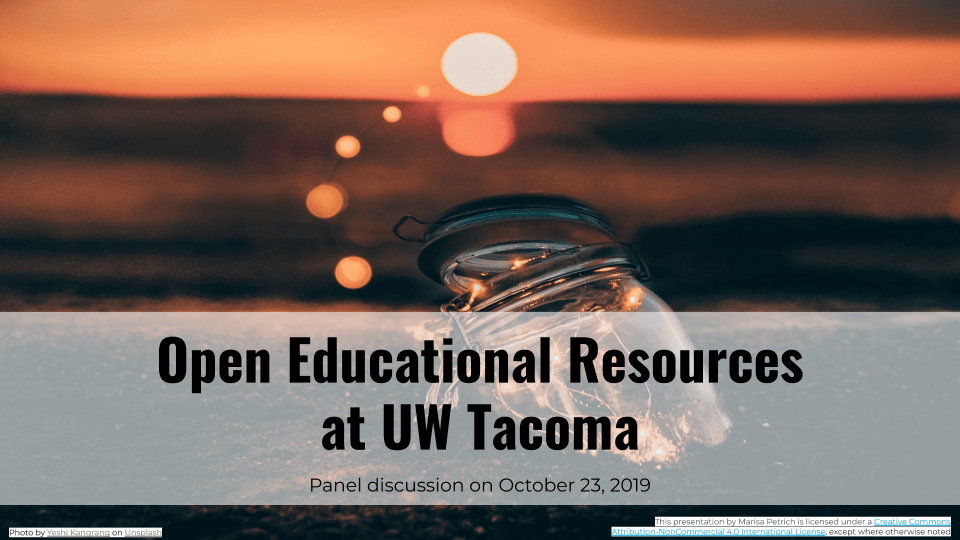

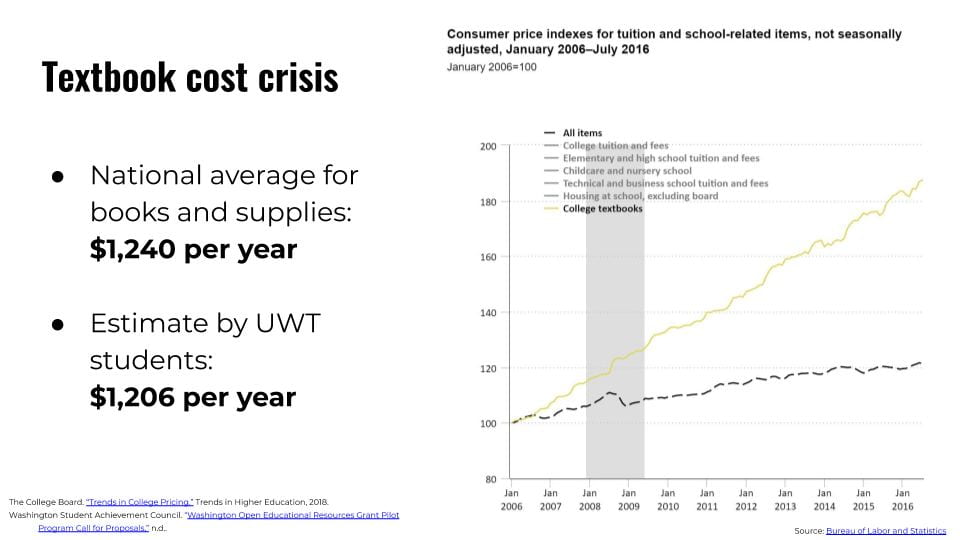
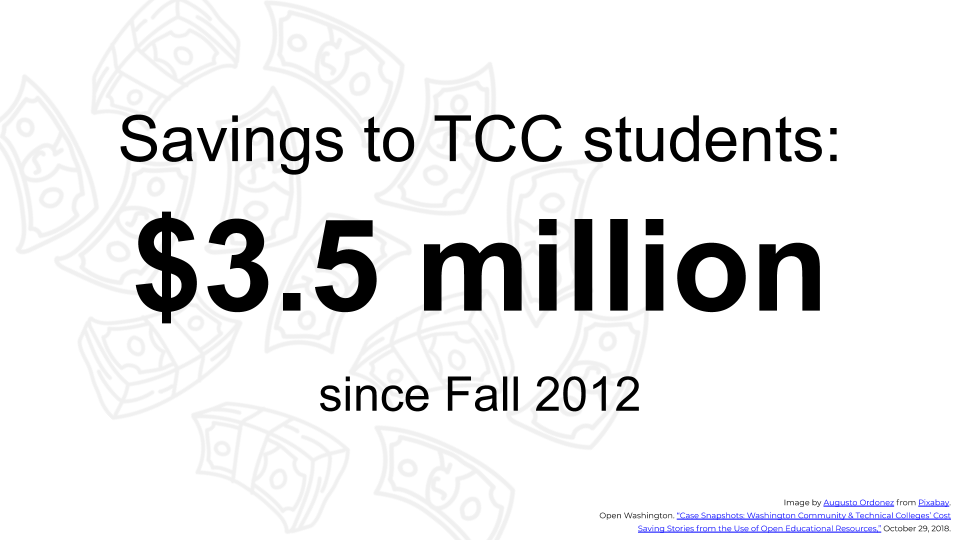
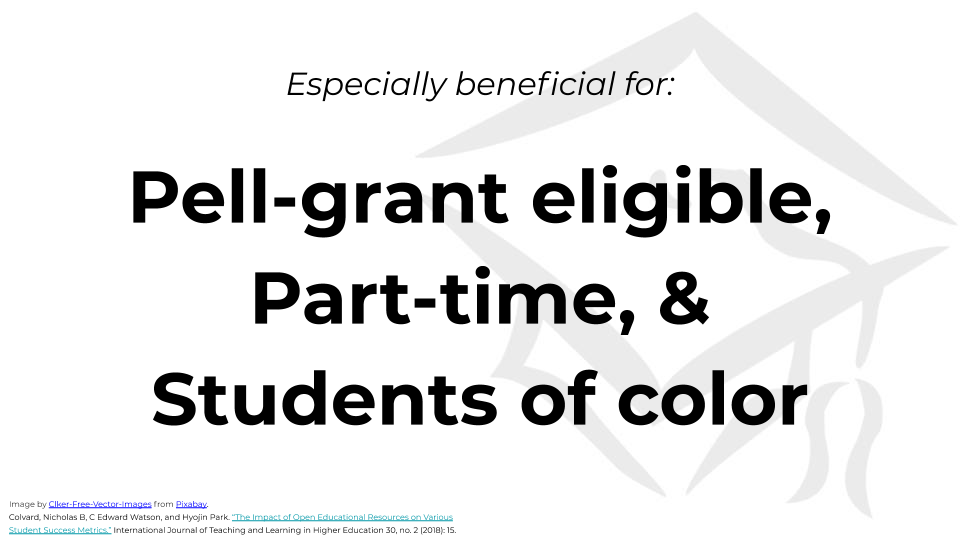


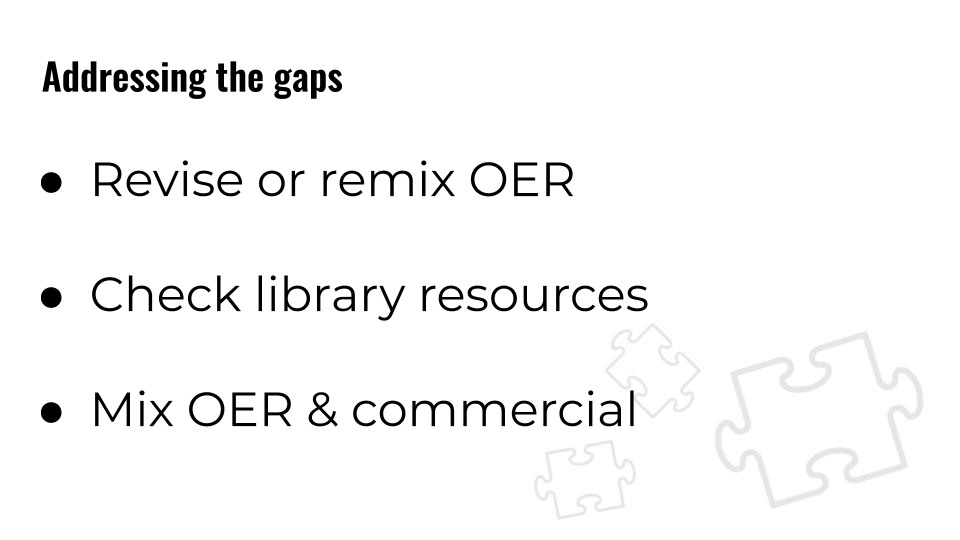
Hello,
I am a current UWTacoma student, and I had $0 in text costs for the entire quarter. I was pleasantly surprised that I had no books to buy and that my professors were choosing different articles and text passages to create the course material, which was made available on canvas .
So, I thought I would drop a comment to thank the school for exploring these options that so greatly benefit students. I would also like to give a much deserved shout out to my professors.
Dr. Bill Kunz
Dr. Sonia De La Cruz
Dr. Christine Stevens
They are the type of Rockstar that make UW one of the best institutions of higher education in the world.
-Joe Barboza
Thank you so much for sharing this! I’m sure your faculty appreciate the shout-out.